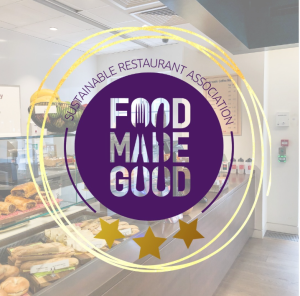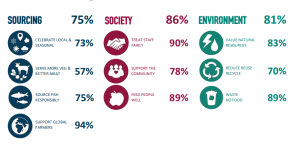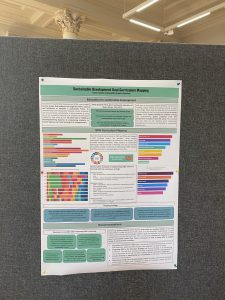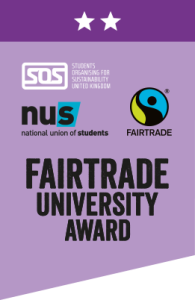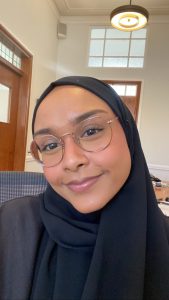This blog post was written by Rosa Roe Garcia, King’s Sustainability’s Digital Communications Assistant.
We are thrilled to announce that King’s has three finalists for the 2022 Green Gown Awards UK & Ireland. These awards are intended to recognise the outstanding sustainability initiatives at different universities and colleges. We are so proud of these three finalists who have worked so hard to integrate sustainability into King’s.
The King’s Climate Action Network (CAN) has been chosen as a finalist in the 2030 Climate Action Category. This category focuses on the steps that institutions are taking or plan to take in order to meet their sustainability targets. The King’s CAN is an open, interdisciplinary forum for co-creating and implementing the university’s Climate and Sustainability Action Plan.
With many sub-groups tackling a wide range of climate issues, this network always puts students and staff at the center of our approach to climate action. More than 350 students and staff have joined the King’s CAN since its beginnings in October 2020. The judges described it as innovative engagement centered on staff and students.
We have two finalists in the category of sustainability champions: a student and a staff member. This category recognises individuals who have worked incredibly hard to implement a sustainability project that has had a positive impact on their colleagues, their institution, or the local community.
Clarisse Mace is a finalist for the student sustainability champion category. She began volunteering with the King’s Sustainability Team to assist in the development of our new course, Sustainability & Climate: Learn, Discover, #TakeAction. She has covered various aspects of the climate crisis and sustainability with a diverse and growing group of students and staff. She has said “I am passionate about this project as I think that learning about climate change is the first step to taking action.”
Fatima Wang is a finalist for the staff sustainability champion. She has established nine green impact initiatives for MSc students studying sustainability in collaboration with Lambeth’s Air Quality Team and Business Improvement Districts. She also launched a new project on low traffic neighbourhoods in Lambeth to motivate residents to adopt greener modes of transport. She said “Through research, education and community engagement, universities have huge potential to have a positive impact on local communities and to forge unique collaborations.”.
Congratulations to the two individual finalists and all the members of the Climate Action Network. We are so happy all your hard work is being recognised and we look forward to the awards ceremony.


